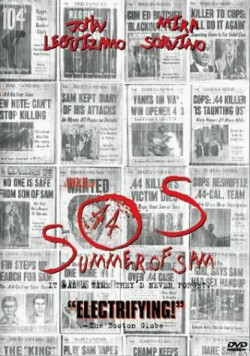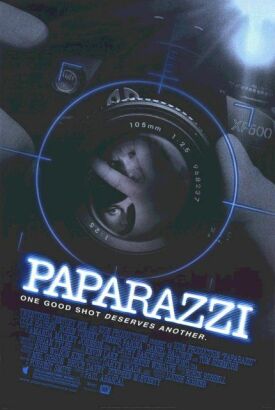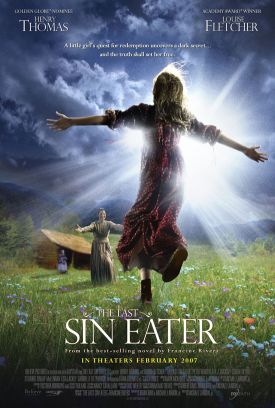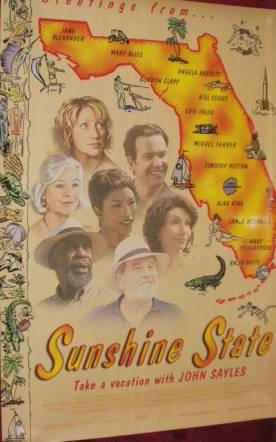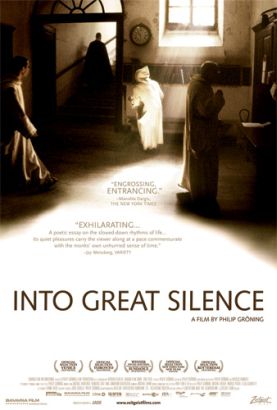Summer of Sam
Spike Lee’s Summer of Sam represents yet another mile-marker in Mr
Lee’s progress from interesting young filmmaker to boring commercial hack. He no
longer seems to have anything to say except for the same kinds of things he says
in interviews to get attention: Clarence Thomas ought to be beaten with a
baseball bat, Charlton Heston ought to be shot, Rudy Giuliani is “evil.” The
media naturally sit up and take notice of such inflammatory remarks and Lee gets
the publicity he needs. With that publicity, he then proceeds to sell a film
that is also billed as being inflammatory — in the case of Summer of Sam even before
it was released. The families of the victims of David Berkowitz protested at a
revival of the sensationalism surrounding their loved ones’ deaths, and
Berkowitz himself, who claims to have become a born- again Christian in prison,
added his voice to the protests. This will make people want to see the movie
because it is talked about, and presumably to overlook the fact that it has
nothing of any interest to say. Not about “Sam”; not about anything else.
Lee in short has become a player of the media game rather than a real filmmaker, who would be
content to let his work speak for itself. The films speak in the same
voice as their author. Like him they are self-consciously outrageous and
attention-getting but completely lacking in aesthetic or moral seriousness. If
Summer of Sam were to be reduced to the sorts of sound-bites that Lee has
become accustomed to trafficking in, they would go something like this:
New York Italians are either mafiosi or dumb as dirt — or both
David Berkowitz, the “Son of Sam” killer was a lunatic, but an amusing
one
The people he killed are of no more interest to us than they were to him
Violence often results from the intolerance of stupid people in a tightly
knit community for those who are different from themselves
The power of the impulse to social conformity is a manifestation of
oppressive power
About the murders themselves Lee has nothing very much to say. They are just
an excuse to get people to watch, as they might watch an accident on the
freeway. The fundamental unseriousness with which he treats them is suggested by
the scene in which the famous black Labrador, Harvey, who belonged to
Berkowitz’s neighbor, Sam, is made to “talk” by means of computer animation and
the voice of John Turturro.
But the murders inspired fear among New Yorkers at the time they were
happening, and it is this atmosphere of dread which descended especially on the
Bronx in the hot summer of 1977 that is Lee’s real subject. “I was attempting to
put madness on film,” said Lee at the Cannes Film Festival. Of course this
“madness” has political implications, as people sought for a scapegoat and
because it forms a suggestive backdrop for the story of Vinny (John Leguizamo),
his marriage to Dionna (Mira Sorvino) and his friendship with the punk
ne’er-do-well, Ritchie (Adrien Brody). It should not need pointing out that the
atmosphere could have been evoked as effectively (or, I think, more effectively)
without showing any of the murders. They should have been offstage for us as
they were for the characters we are mainly meant to be interested in.
But the graphic representation of a .44 Bulldog revolver, the weapon that Lee
said, also at Cannes, should be used on Charlton Heston (“I was only joking,” he
claimed later) being fired through a car window and the kind of mess it makes
is essential to Lee’s purpose in the sense that it excites comment in the
press and brings in an audience of those who just want to see what people are
talking about. Similarly, the crisis of Vinny’s and Dionna’s marriage is set in
the aftermath of a visit to Plato’s Retreat and Ritchie stands out in the
neighborhood not only because of his punk get-up but because (improbably, given
his relationship with Jennifer Esposito’s Ruby) he is involved in gay porn. This
not only allows Lee some more sensationalism but also provides another, more
politically correct way for Ritchie to be “different” and therefore
persecuted.
Once the audience has settled in, however, there is nothing but such
sensationalism to see. Apart from the highly dubious statements mentioned above,
the film is little more than a collection of music video or TV commerical (it is
no accident that Lee has been directing commercials for his own agency,
Spike/DDB, lately) moments, that is gratuitous displays of cool images which
have little or nothing to do with one another or with anything else except The
Product — in this case the movie itself. The images are of disco dancing,
murder, sex (both gay and straight) and the sex-war between Vinny and Dionna, to
whom he is compulsively unfaithful; drugs (buying and taking) and drinking and
the kind of crazy behavior people get up to under their influence; baseball,
Reggie Jackson and the Yankees’ success of 1977; and 70s nostalgia
generally — punk, the blackout, the riots, Studio 54, Plato’s Retreat.
All of this is set to one of the most obtrusive soundtracks ever. Every scene
is presented to the accompaniment of some pop tune, either of the period or
contemporary, and a some of the dialogue is drowned out by the loudness of the
music. As it happens, this doesn’t matter as much as it might otherwise do,
since most of the dialogue consists of strung-together obscenities in a positive
riot of inarticulacy. “What the f*** is this f****** s***?” we may be tempted to
ask. All the characters are mired in this same linguistic poverty, and we might
suppose it is another part of his slur against the intelligence of
Italian-Americans except for the evidence of his other films that this is Mr.
Lee’s own everyday demotic. The failure of language naturally increases the
importance of the pictures and thus the resemblance of the film as a whole to a
music video.
Discover more from James Bowman
Subscribe to get the latest posts to your email.

